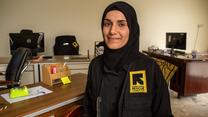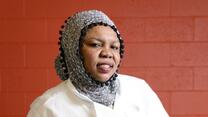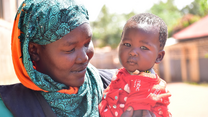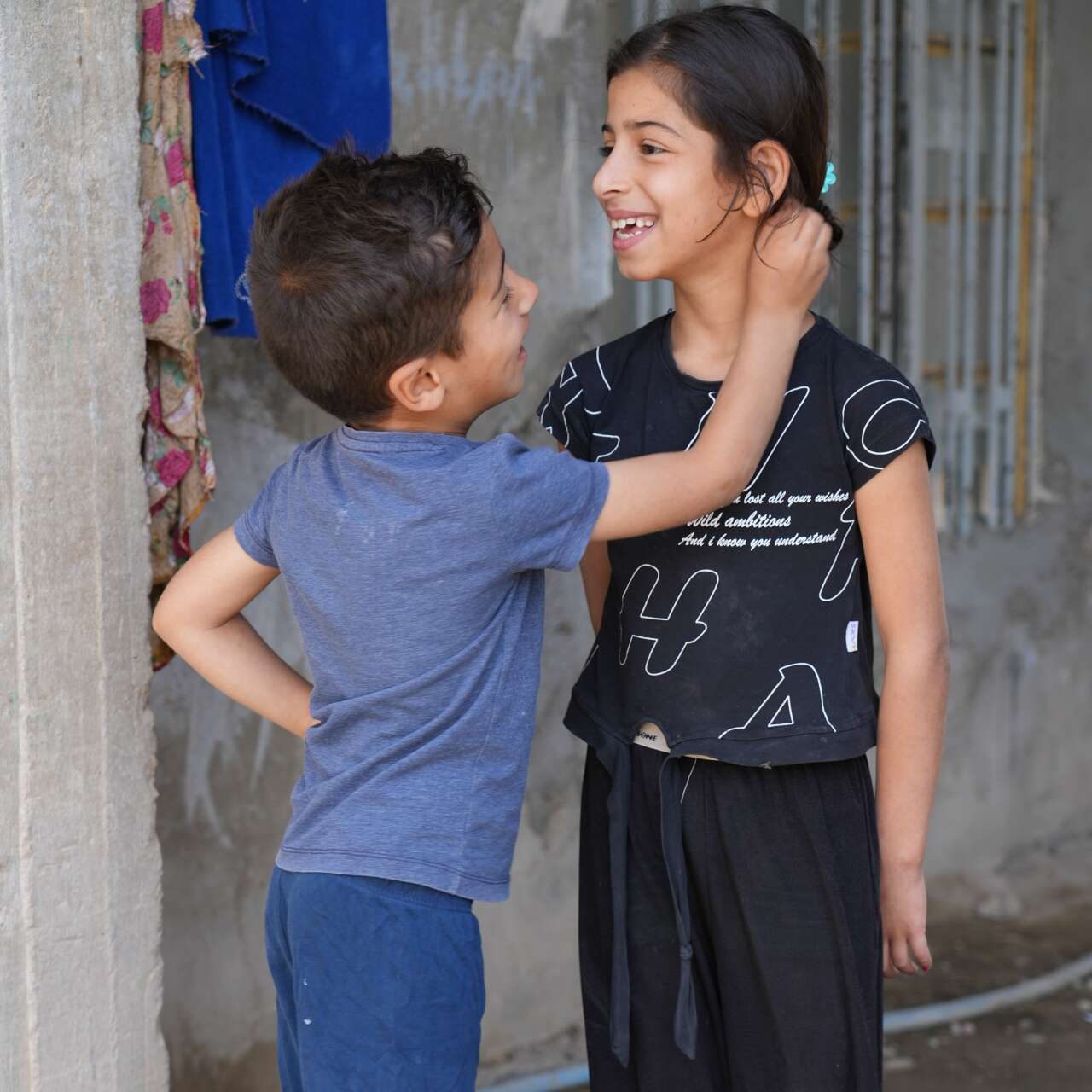
Intisar, 40, and her four children had no choice but to flee after an airstrike completely destroyed their home in Anbar, Iraq. During that time, her husband had also gone missing due to the attacks by the group known as ISIS in their city and was presumed dead. Both of these events left her distraught and uncertain about what she should do next.
Intisar remembers the thoughts that swirled in her mind. “How am I going to make it? How do I live now? How will I support myself financially? How do I help my children? How do I get them food and water? These questions were in my head,” she shares.
She escaped with her children to Baghdad where they had some family members, but she felt mentally exhausted by all the challenges they faced as a displaced family. After a short while, they returned to Anbar and moved into a half-destroyed house that was given by a relative.
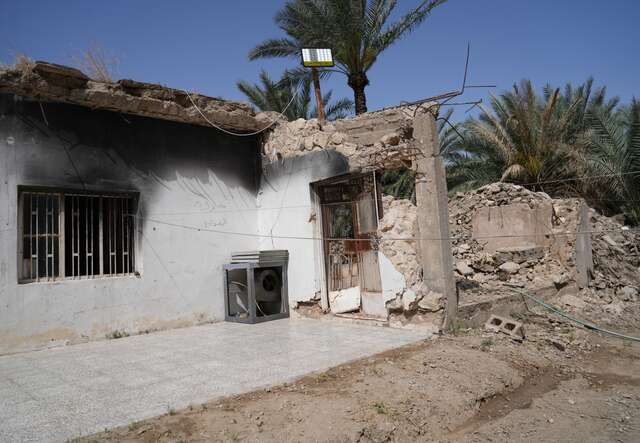
Though Intisar and her children had their own space, it was a dangerous environment to live in. The house had rooms that were filled with rubble and debris like broken and rusted metal pieces. The family came across unwelcome creatures like insects, scorpions, snakes, and a hedgehog. Intisar’s daughter also developed strong allergies to the dust and dirt around the rooms.
In addition, Intisar lacked key legal documents, including her marriage certificate and her children's birth certificates, which made it impossible for her to enroll her children back into school. Their family is among the hundreds of thousands of Iraqis who lack legal status and face challenges accessing basic services.
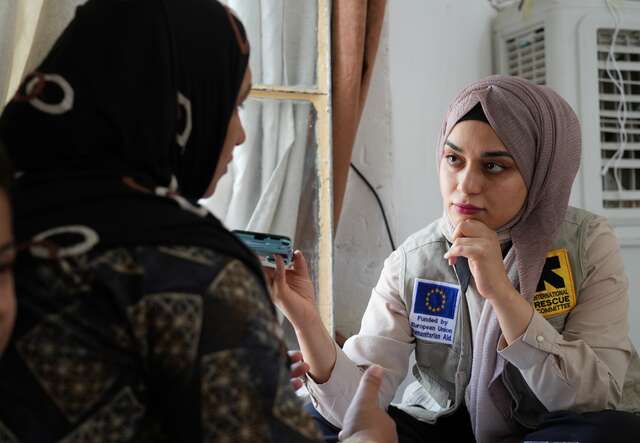
After speaking with some relatives and neighbors, Intisar learned about the IRC and the humanitarian assistance they were providing for families like hers. She was referred to an IRC lawyer, who has provided her with legal support to obtain her family’s civil documentation. She also received cash assistance, which has helped her family to begin rebuilding their lives.
Intisar used the cash assistance to buy an oven for their home with the intent to use it for an income-generating small business for her and her eldest daughter. They have already found some success making pastries for their community.
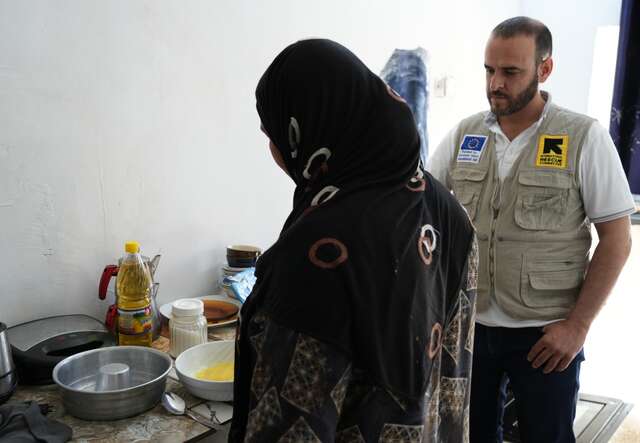
“I started working and making pastries. People started coming to me asking to make them cake or Kulicha (a pastry/cookie often made during Eid time) about twice a week. Little by little, my livelihood came to depend on it, as more and more people kept coming in,” Intisar explains.
With the income she has made, Intisar has slowly started repairing their home. She is now very hopeful and looks forward to fixing her entire house and having a space for her children to play.
“Everything was bad: insects, dirt, and dust. Everything about it was bad. It was not a house. It was like a grave. But I slowly started making it better,” she says.
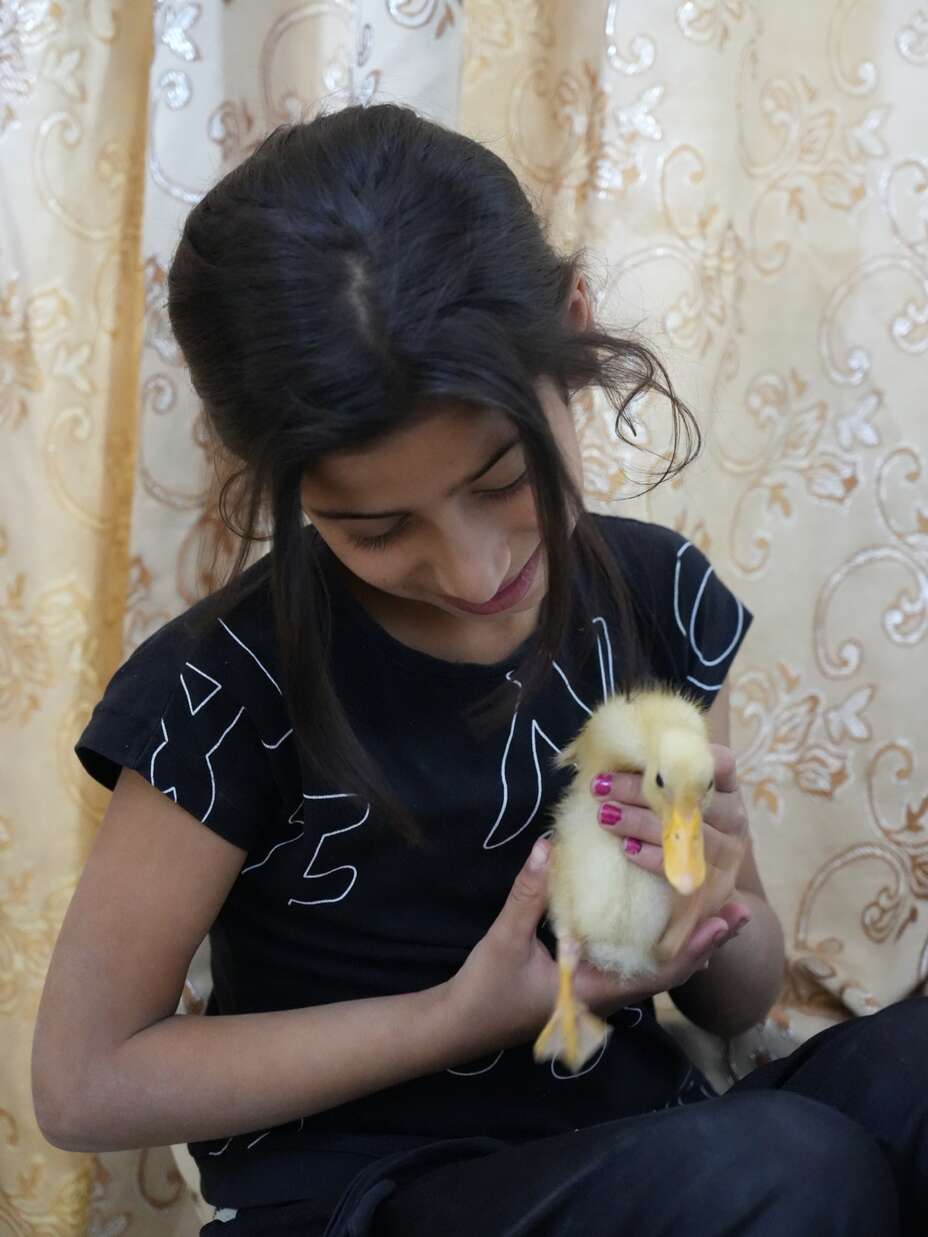
As part of the EU-funded Protection Consortium of Iraq, the IRC is assisting tens of thousands of internally displaced citizens and returnees, including Intisar and her family, to access legal support and obtain critical civil documentation. This documentation will help restore their rights, so they can access jobs, health care, social welfare, and education – and regain control of their future.
